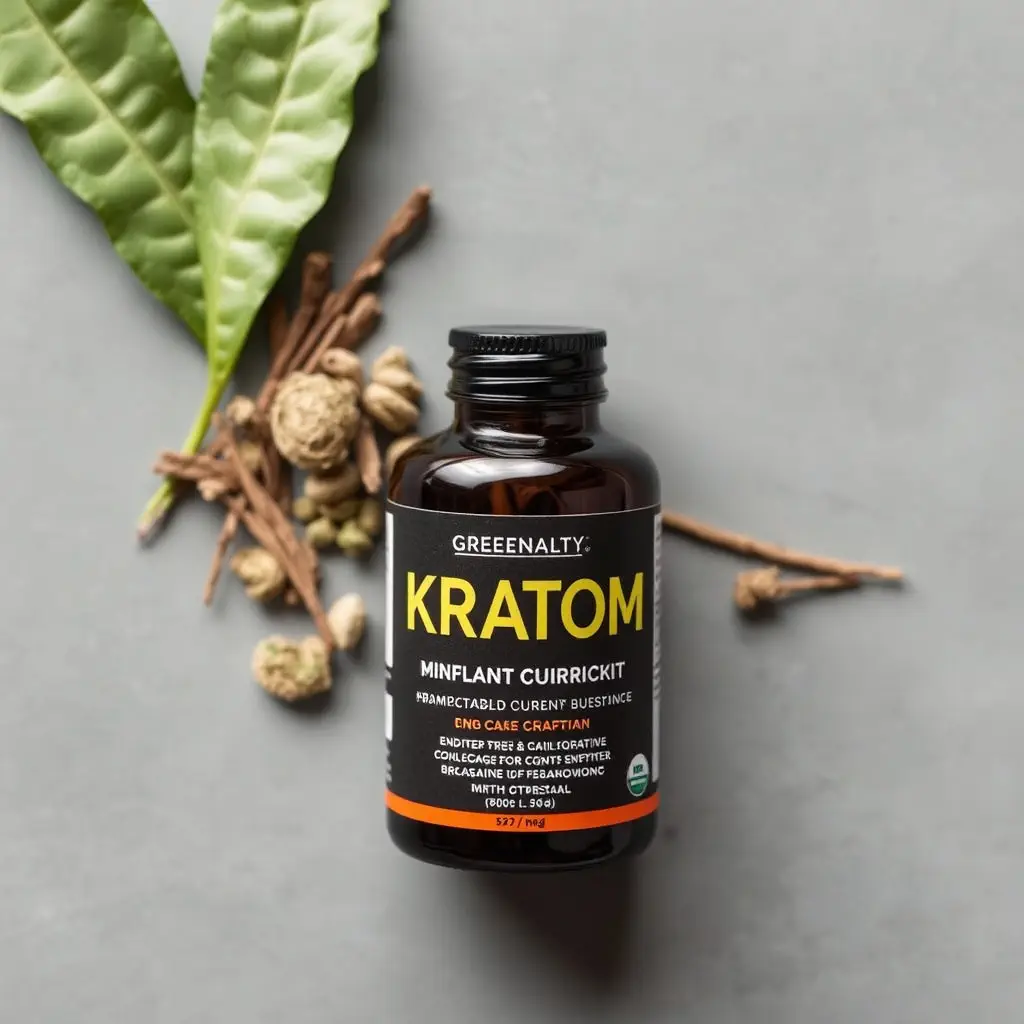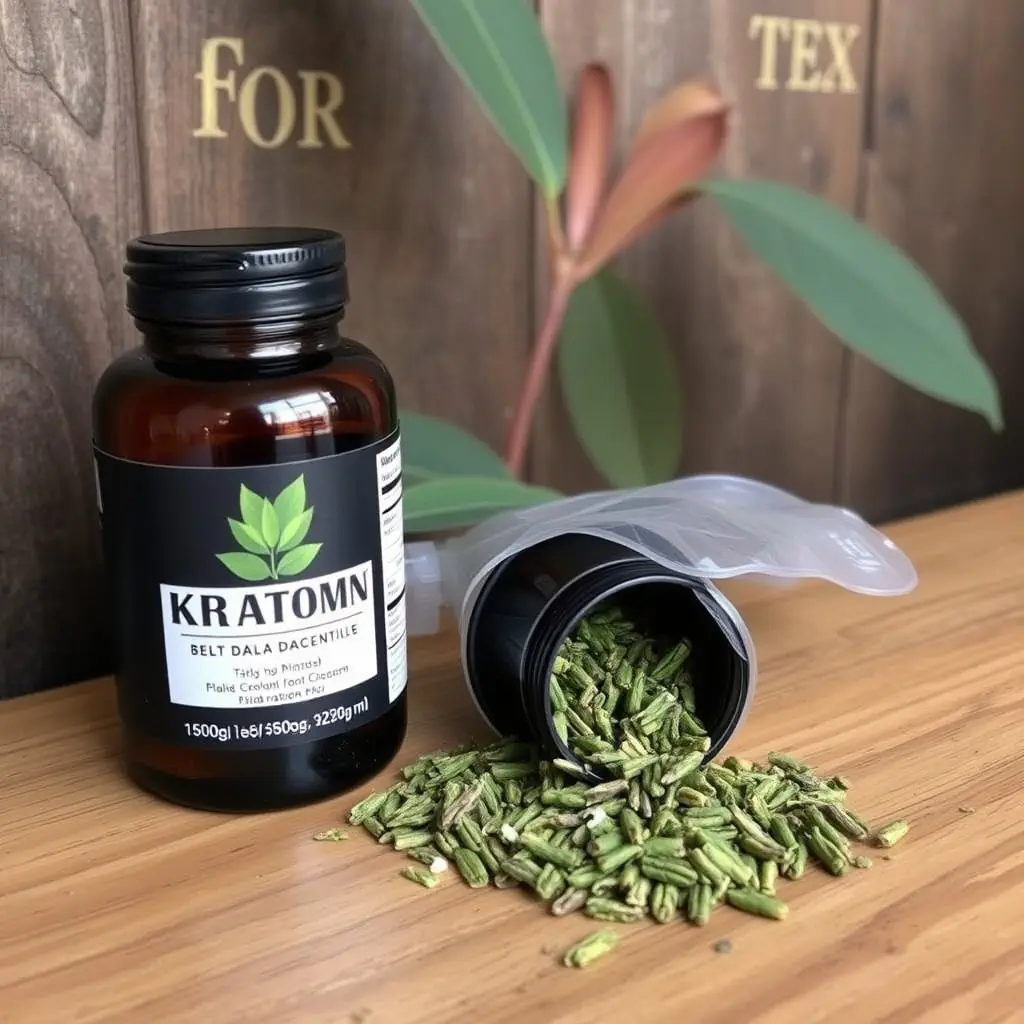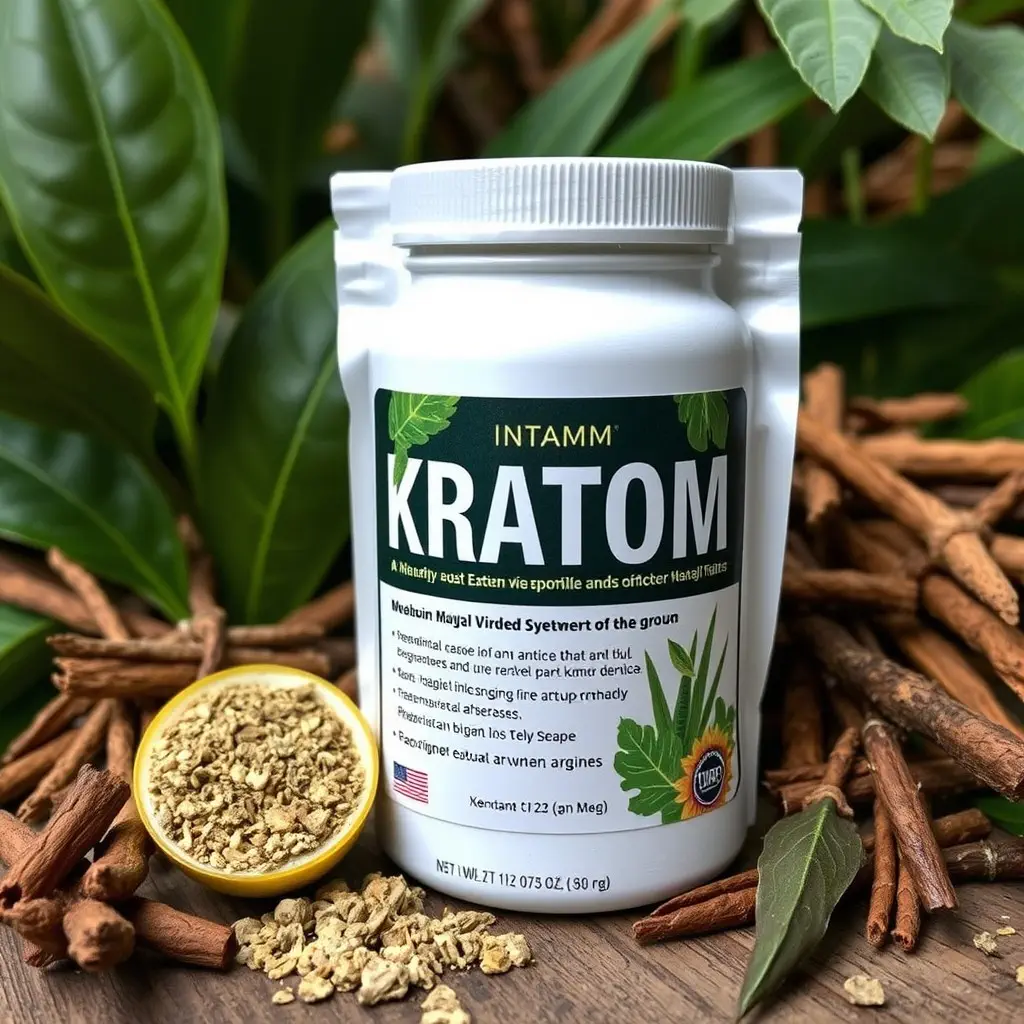Research indicates that kratom, a plant from Southeast Asia with a rich profile of vitamins and minerals, may positively influence bone health by affecting calcium absorption and vitamin D levels through its alkaloids like mitraphylline and 7-hydroxymitragynine. These compounds could potentially aid in maintaining healthy bones, although their exact mechanisms and interactions with other nutrients affecting bone density require more study. Kratom's leaves contain not just these active components but also calcium, magnesium, vitamin C, and vitamin D, all of which are essential for bone health. Calcium supports the structural integrity of bones and teeth, magnesium enhances calcium absorption, vitamin C is vital for collagen production, and vitamin D plays a role in calcium absorption and regulating bone growth. While kratom shows promise as a natural supplement to improve and maintain bone density when combined with proper diet and lifestyle choices, it's important to consult healthcare providers before incorporating it due to its complex effects and potential interactions. Maintaining adequate intake of these nutrients, regular exercise, and ensuring sufficient vitamin D are foundational for supporting robust bones throughout life. Kratom's role in this context is promising but should be considered as part of a holistic approach to nutrition and health.
Calcium’s pivotal role in maintaining robust bone density is widely recognized, yet its synergy with Vitamin D and the emergent interest in kratom alkaloids offers a nuanced understanding of optimal skeletal health. This article delves into the interplay between these elements, exploring how kratom’s vitamins and minerals can complement calcium intake for enhanced bone density. From examining kratom’s mineral profile to discussing practical dietary strategies and supplementation insights, readers will gain a comprehensive view on optimizing their bone health naturally.
- Unveiling the Synergy Between Calcium, Vitamin D, and Bone Density: The Role of Kratom Alkaloids
- Kratom's Contribution to Bone Health: A Deep Dive into Its Mineral Profile
- Optimizing Bone Density with Calcium and Kratom: Dietary Strategies and Supplementation Insights
Unveiling the Synergy Between Calcium, Vitamin D, and Bone Density: The Role of Kratom Alkaloids

Calcium is a cornerstone in maintaining healthy bone density, but it’s not a lone actor in this biological play. The synergy between calcium and vitamin D is pivotal for optimal bone health. Vitamin D facilitates the absorption of calcium into the bones, ensuring that calcium is stored effectively and used when the body needs to draw upon these reserves. This intricate dance between calcium and vitamin D is essential for fortifying our skeletal framework against the ravages of time and the challenges of daily life.
Enter kratom alkaloids, a group of compounds found in the leaves of the Mitragyna speciosa tree that have garnered attention for their potential impact on overall health, including bone density maintenance. Preliminary research suggests that certain kratom alkaloids may influence vitamin D levels and bone metabolism. For instance, mitraphylline, one of the key alkaloids in kratom, has been studied for its effects on bone health, potentially enhancing the absorption and utilization of calcium. Additionally, 7-hydroxymitragynine may have a role in modulating the immune response and inflammation, which can indirectly affect bone density. The interplay between these kratom alkaloids, vitamin D, and calcium could offer new avenues for supporting healthy bones. However, more research is needed to fully understand the mechanisms at play and how they can be harnessed for therapeutic benefits. Kratom’s role in the context of vitamins and minerals, particularly those influencing bone health, presents an intriguing area of study within nutritional science and integrative medicine.
Kratom's Contribution to Bone Health: A Deep Dive into Its Mineral Profile

Kratom, a plant from Southeast Asia with leaves that contain a variety of compounds including vitamins and minerals, has garnered attention for its potential impact on overall health, including bone density. Among the nutrients found in kratom are calcium and magnesium, both of which play pivotal roles in maintaining strong, healthy bones. Calcium, well-known for its critical role in bone structure, is an essential mineral that helps to keep bones and teeth robust. Regular intake of calcium supports the balance between bone formation and resorption, ensuring that bones remain dense and less prone to fractures. Kratom’s mineral profile also includes magnesium, which works synergistically with calcium by facilitating calcium absorption in the body and supporting the overall health of bone tissue. Additionally, kratom contains a spectrum of other vitamins and minerals that contribute to the body’s metabolic processes, further enhancing bone integrity. These include vitamin C, which is important for collagen production, a key component of healthy bones, as well as vitamin D, which aids in calcium absorption and bone growth regulation. The combination of these nutrients within kratom suggests its potential role as a complementary approach to improving or maintaining bone density, particularly when paired with a balanced diet and lifestyle choices that support bone health. For individuals seeking natural ways to bolster their skeletal system, understanding the vitamins and minerals present in kratom could offer valuable insights into holistic bone care strategies.
Optimizing Bone Density with Calcium and Kratom: Dietary Strategies and Supplementation Insights

Including calcium in your diet is a cornerstone of optimizing bone density, as this mineral plays a pivotal role in maintaining strong bones and teeth. Calcium is integral to the structure of bone tissue, and its presence is essential for preventing osteoporosis and reducing the risk of fractures. Beyond dairy products, leafy greens such as kale and broccoli are excellent sources of calcium for those who follow a plant-based diet. Additionally, fortified foods like orange juice and soy products can significantly contribute to your daily calcium intake. To enhance absorption, vitamin D is a crucial companion to calcium; it promotes the efficient uptake of calcium in the body. Kratom, known for its wide array of health benefits, may also play a supportive role in this context due to its interaction with vitamins and minerals. Kratom contains various compounds that can potentially aid in maintaining healthy bone density when used responsibly as part of an overall wellness regimen. It’s important for individuals to consult healthcare professionals before incorporating kratom into their routine, considering its complex effects and potential interactions with other medications or supplements. Furthermore, regular exercise, particularly weight-bearing and resistance training, combined with a balanced diet rich in calcium and vitamin D, is essential for preserving and improving bone health throughout different life stages. Kratom’s alkaloids may offer additional support to this end, although further research is necessary to fully understand its implications in this area.
Calcium’s pivotal role in maintaining robust bone density is well-documented, and its synergy with vitamin D is a cornerstone of bone health. The exploration of how kratom alkaloids complement this relationship through its rich vitamins and minerals profile opens new avenues for holistic approaches to optimizing bone density. This article has delved into the scientific underpinnings of calcium’s effects, the benefits of vitamin D co-supplementation, and how kratom may contribute positively to this process. By integrating dietary strategies and understanding supplementation insights, individuals can make informed decisions to support their skeletal integrity. In conclusion, incorporating kratom’s vitamins and minerals into a balanced regimen may be a valuable addition for those seeking to enhance bone density.






